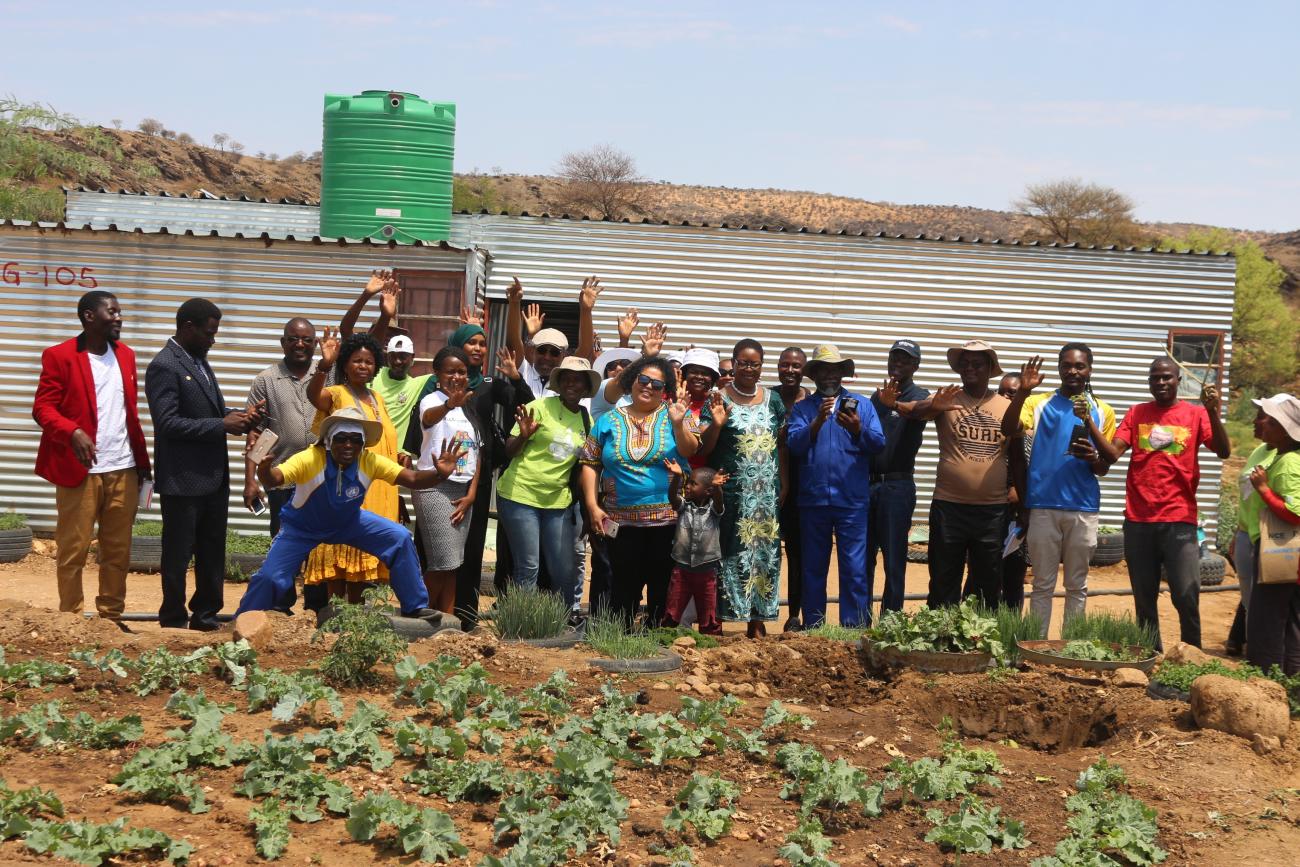The UN System in Namibia held a symbolic tree planting ceremony in the Samora Machel Constituency, near Windhoek, marking the 74th annual United Nations Day
The UN system in Namibia held a symbolic tree planting in the Samora Machel Constituency which involved the planting of 500 saplings. The Samora Machel Constituency is located across four northern suburbs of Windhoek: Wanaheda, Greenwell Matongo, Goreangab, and part of Havana. Most of the residents of this constituency are formally unemployed and derive their income from informal employment and small enterprises like shebeens and car washes. The impact of HIV/AIDS is high.The event coincided with the UN’s 74th anniversary celebration, highlighting the enduring ideals of the Charter.
UN Resident Coordinator at interim, Rachel Odede said in partnership with the Ministry of Agriculture, Water and Forestry, the selected saplings are indigenous to the central region of Namibia and particularly well suited to the dry conditions. “As a result, the trees require less water, but will provide lush green areas in the community,” stated Odede.
Following the symbolic gesture, the Samora Machel constituency will coordinate the planting of the trees within the community. Odede stated planting trees is a lifelong investment as it provides environmental, economic and social benefits throughout its lifetime. She noted the 2018/2019-rainfall season has been extremely poor with unprecedented severe drought conditions which affected the whole country, resulting in agricultural production losses and water shortages for human, livestock and industrial use. The revised crop estimates showed massive reduction in harvest with aggregated cereals at 61 percent lower than the last season’s harvest and 52 percent below the average production. She added that household food security has weakened significantly. Grazing and water supply situation continues to deteriorate in all parts of the country as drought conditions strengthen.
In addition, the Minister of Poverty Eradication and Social Welfare, Bishop Zephania Kameeta said the investment of planting trees in the surrounding will have long lasting benefits to the community. Kameeta also noted that there are many benefits that people derive from planting trees such as combating climate change, trees clean the air, conserve energy and save water amongst others. “It is believed that trees placed strategically around a single-family home can cut summer air conditioning needs by up to 50 percent by reducing the energy demand for cooling our houses, will reduce carbon dioxide and other pollution emission from power plants,” Bishop Kameeta stated.
Planting trees is a worthwhile, valuable investment and it aligns with the UN’s master plan to attain the 2030 Agenda for Sustainable Development for all.





